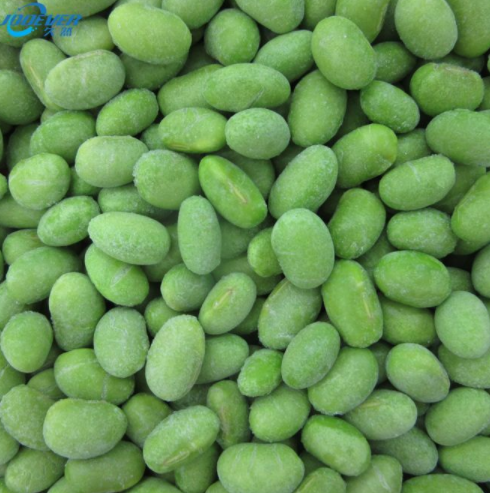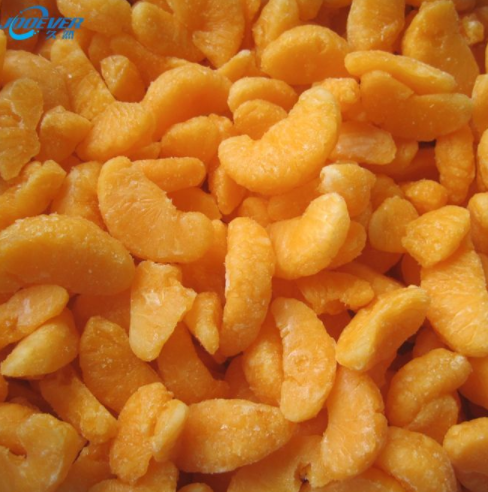Your reliable partner for frozen foods
For busy people, after a day of fast-paced commuting to and getting off work, they don’t want to start cooking anymore. When staying at home on vacation,some people do not want to go out to eat, and meanwhile they worry about unsanitary takeout. It's not convenient to buy food in the supermarket every day. Why don't you buy more at one time and put them in refrigerators?
At these times, quick-frozen food may be your best friend. You can choose from all kinds of quick-frozen dumplings, steamed buns, dim sum, to fish, meat, shrimp, and quick-frozen fruits and vegetables that have emerged in recent years.
However, in addition to satisfying the convenience and appetite, many people are beginning to worry about whether quick-frozen food is nutritious? With such a long shelf life, can you eat it with confidence?
Frozen food is more than just freezing food. If it is our homemade dumplings and we put them in the refrigerator, the temperature drops slowly and the water in the food will form ice crystals. As the temperature drops, such ice crystals will grow larger and easier and destroy the cellular structure of the food, thereby causing the taste of the food to deteriorate.
The quick-frozen food adopts a relatively unique freezing process. Compared with the general freezing process, it can quickly reduce the temperature of food far below the freezing point of water (usually at minus 18°C).
Due to the rapid cooling rate, the water in the food will enter a "too cold" state. The ice crystals formed at this time are small, so small that they will not seriously damage the food cells, and can retain the original flavor of the food to the greatest extent.
Moreover, due to the low temperature, cell activities are basically stopped, and the activities of microorganisms are also greatly restricted, so quick-frozen foods can usually be stored for a long time.

Although there are many types of quick-frozen food in the supermarket, all kinds of dumplings, dim sum, meatballs, occupying a few rows of refrigerators, from the perspective of raw materials, it can be roughly divided into frozen meat and frozen vegetables and fruits.
Meat mainly provides protein and minerals. Under extremely low temperature conditions, protein and mineral machinery will not change. Therefore, the nutritional value of frozen meat is not lower than that of fresh meat. But in terms of taste, frozen meat is indeed slightly worse. Because if it is frozen for a long time, the meat will gradually lose water and the taste will not be so tender.
In addition to traditional staple foods such as frozen meat, quick-frozen dumplings, and steamed buns, frozen vegetables are also uncommon in supermarkets. From classic frozen green beans, carrots, and corn, to quick-frozen broccoli, asparagus, and greens, the varieties are becoming more and more abundant, satisfying the needs of the majority of homesteaders. Based on the concept of "freshness" and "natural" supremacy, most people will think that frozen fruits and vegetables are not as nutritious as fresh ones. But this is actually this misunderstanding.
When fruits and vegetables are picked, they are still undergoing biochemical activities such as respiration. Before entering supermarkets and farmer’s markets, they have to go through processes such as transportation and storage, and finally reach consumers’ homes, often requiring long journeys. Nutrition loss is inevitable.
As soon as frozen fruits and vegetables are picked, they will soon be frozen at minus 18°C. At this temperature, the respiration of fruits and vegetables is almost stagnant, and microorganisms cannot grow and reproduce. In theory, it is even more helpful for the retention of nutrients. Therefore, regardless of taste, frozen fruits and vegetables will not be less nutritious than the fresh fruits and vegetables you can buy in vegetable farms and supermarkets.

Although the nutrition of quick-frozen food is no different from ordinary food, there are rumors that quick-frozen food will add a lot of fat and salt.
Indeed, some quick-frozen foods, especially quick-frozen meatballs, dumplings and snacks, often have more fat and salt in order to taste good. It may not be good to eat more.
However, this is not a problem only with quick-frozen foods. In fact, in order to taste delicious, almost all food companies will process food with more oil and salt. This is especially true in restaurants where they usually eat. Many people also like to cook at home with much oil and salt.
1. When choosing quick-frozen food, carefully read the food label and try to choose products with less fat and salt;
2. Eat as little as possible if it has more oil and more salt;
3. Pay attention to the combination of meat and vegetables. If you can eat a bag of quick-frozen dumplings, it is better to replace it with half a bag of dumplings and add some hot vegetables.
Xiamen Jooever Import And Export Co.,Ltd is a leading supplier of high quality frozen food. Our wide and varied range includes frozen vegetables, frozen fruits, frozen berries and frozen mushrooms.
Jooever's reputation is founded on quality, service and reliability. We insist that our products are processed and packed under a HACCP program and complying with the industry's highest ISO and food safety standards.
If you are looking for a reliable frozen vegetables and fruit supplier, we will absolutely be your best choice. Please kindly contact us immediately.